The Bhupen Hazarika Setu – the country’s longest bridge – not just enhances connectivity between Assam and Arunachal Pradesh, it is also of great strategic importance. We head there in the all new Hyundai Venue.
The all new Hyundai Venue stands on the grassy knoll by the river Lohit. It is splattered with mud, but these are battle scars it wears with pride. It has done 500km without a whimper through the width of Assam. It has endured pouring rain and has been subjected to some atrocious roads. But through all this, it sailed through, salient and strong, keeping us comfortable and content.
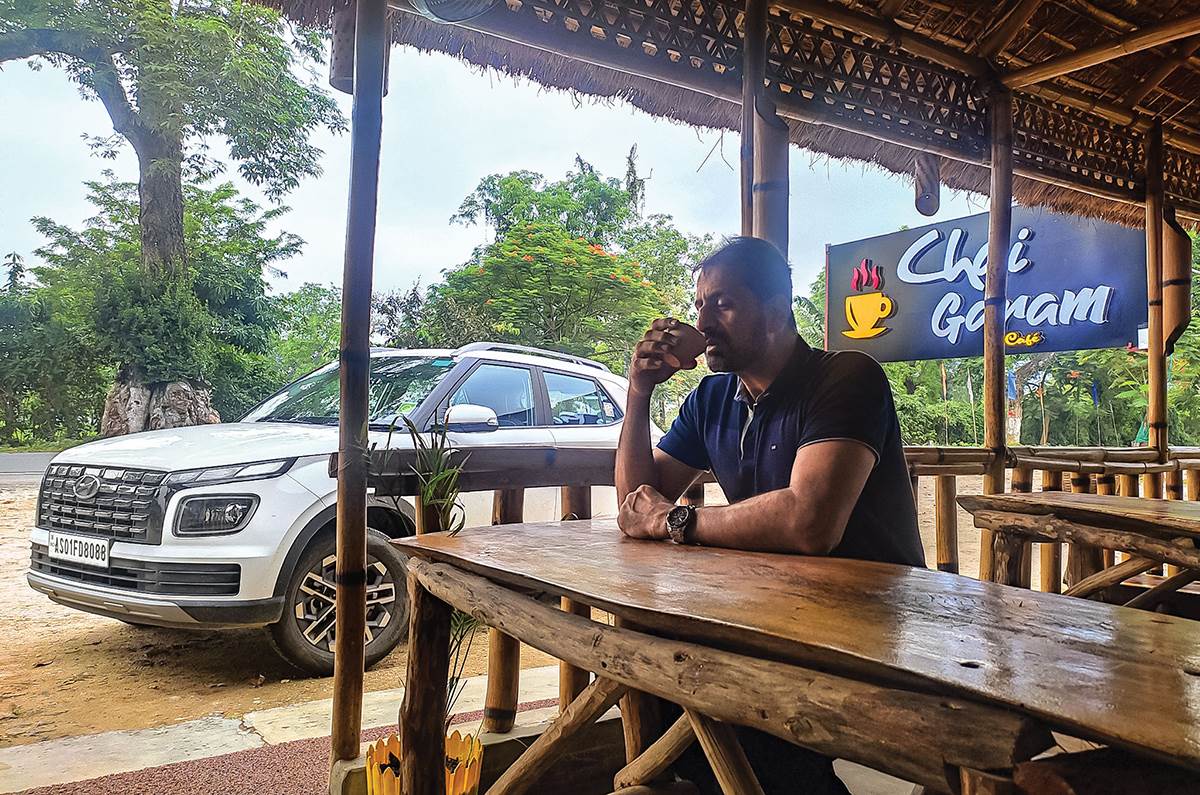
Our trip started from Guwahati, and our destination was the Dhola Sadiya Bridge or the Bhupen Hazarika Setu, as it is officially called, near Dibrugarh. This 9.15km structure is the longest bridge over water in India, and is part of the ongoing plan for greater integration of the North East with the mainland. One of the ways to do this is infrastructure development, something that has been a priority of successive governments.
Even though we left Guwahati at an unearthly hour of 3am, dawn had broken within 1.5 hours and 80km. The rain was whimsical: fierce at times, drizzly the next moment. That was hardly a bother for us because the three settings for the wipers plus interval settings on the intermittent swipe meant that we could minutely match the wiper speed to the mood of the rain. The Venue’s pliant suspension soaked up deep potholes and rude rumbler strips with hardly a judder.
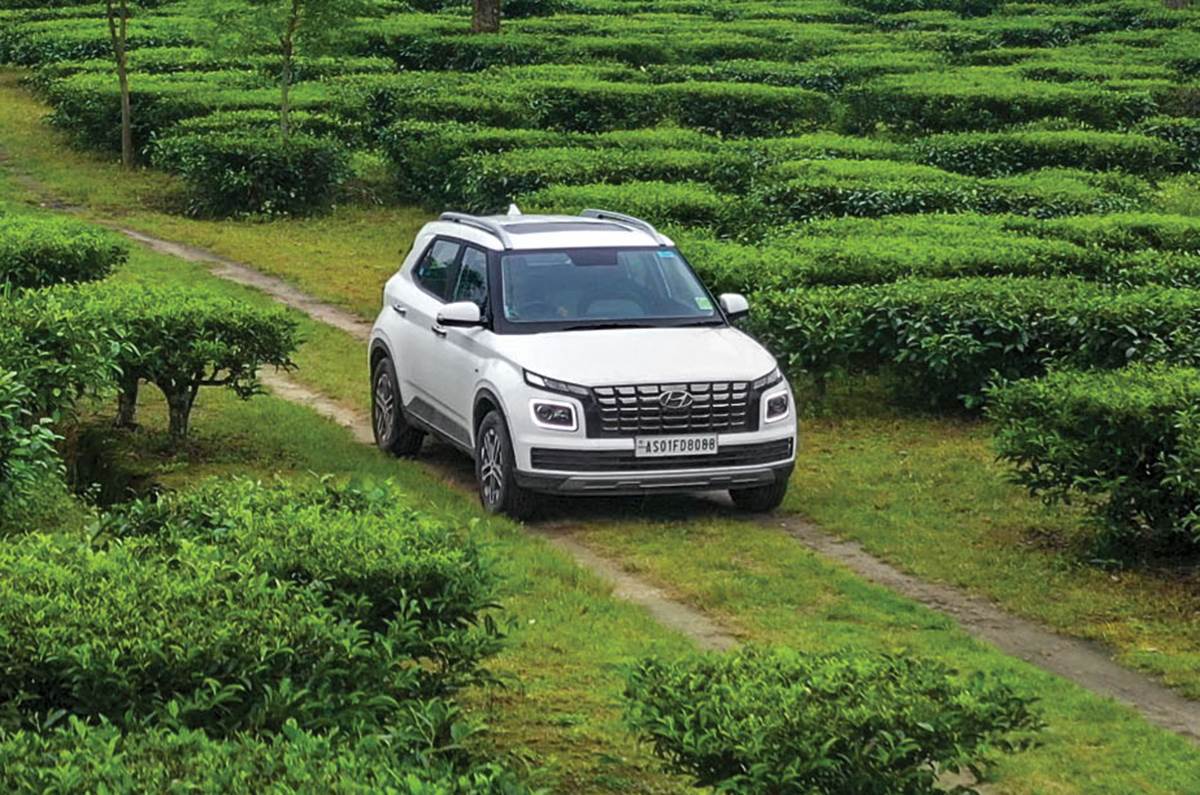
The 432-kilometre distance from Guwahati to Dibrugarh is a mix of good roads and ‘where’s the road?’ There are cars, cycles, carts and cows, all moving at vastly varying speeds, so I was constantly cheering the DCT that this Hyundai Venue’s 1.0-litre GDI Turbo engine is mated to. Its rapid changes meant that I was generally within the engine’s power band, with the rpm staying more or less between 2,000 and 3,000rpm. All this jargon means that even with my spirited driving in the ‘Sports’ mode, the Venue returned 12 kilometres per litre of petrol!
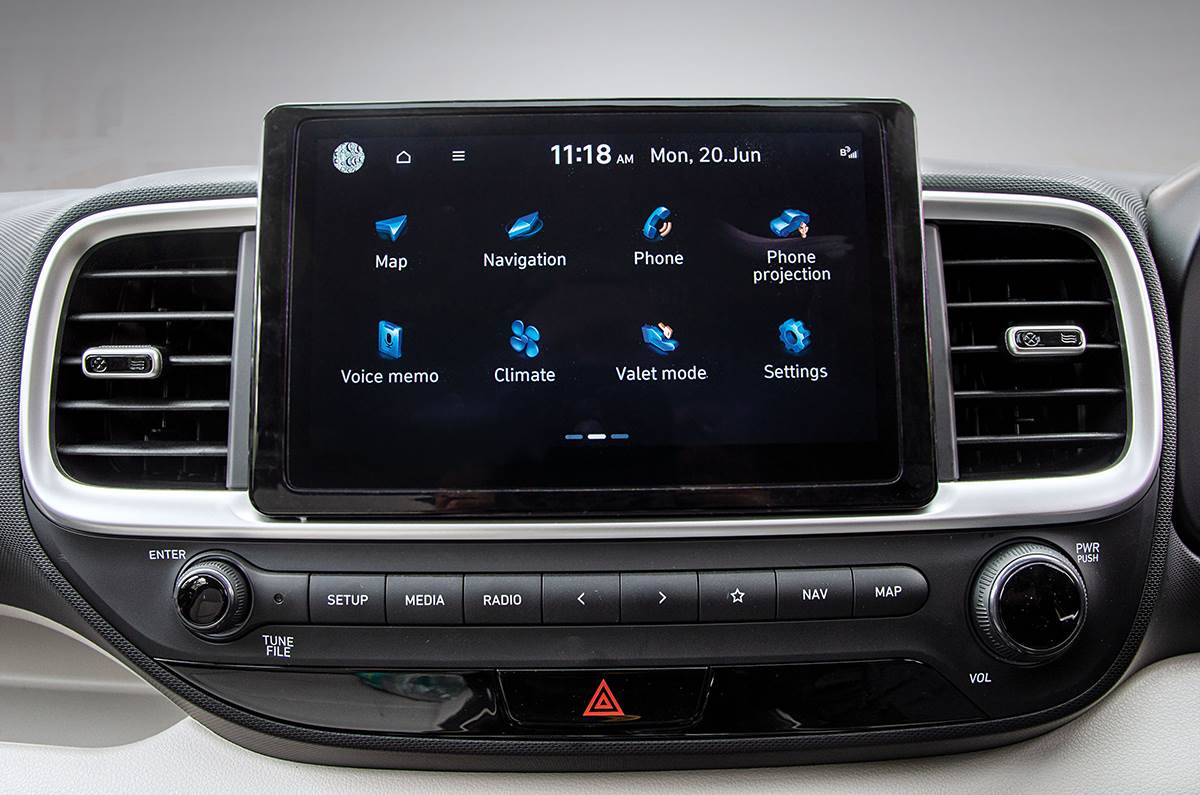
Inside the car, the crew, all millennials still in their growing years, needed to complete their sleep and the rear reclining seats had them sweetly snoozing to the strains of music streaming from the phone connected via Apple CarPlay.
All this also meant that when we got to Dibrugarh 11 hours later, they were quite eager to push on for another two hours to get to the Dhola Sadiya Bridge 103 kms away. They were, however, informed that dusk in the North East creeps up quickly and quietly by 4pm, and besides, there was a thunderstorm brewing around us.
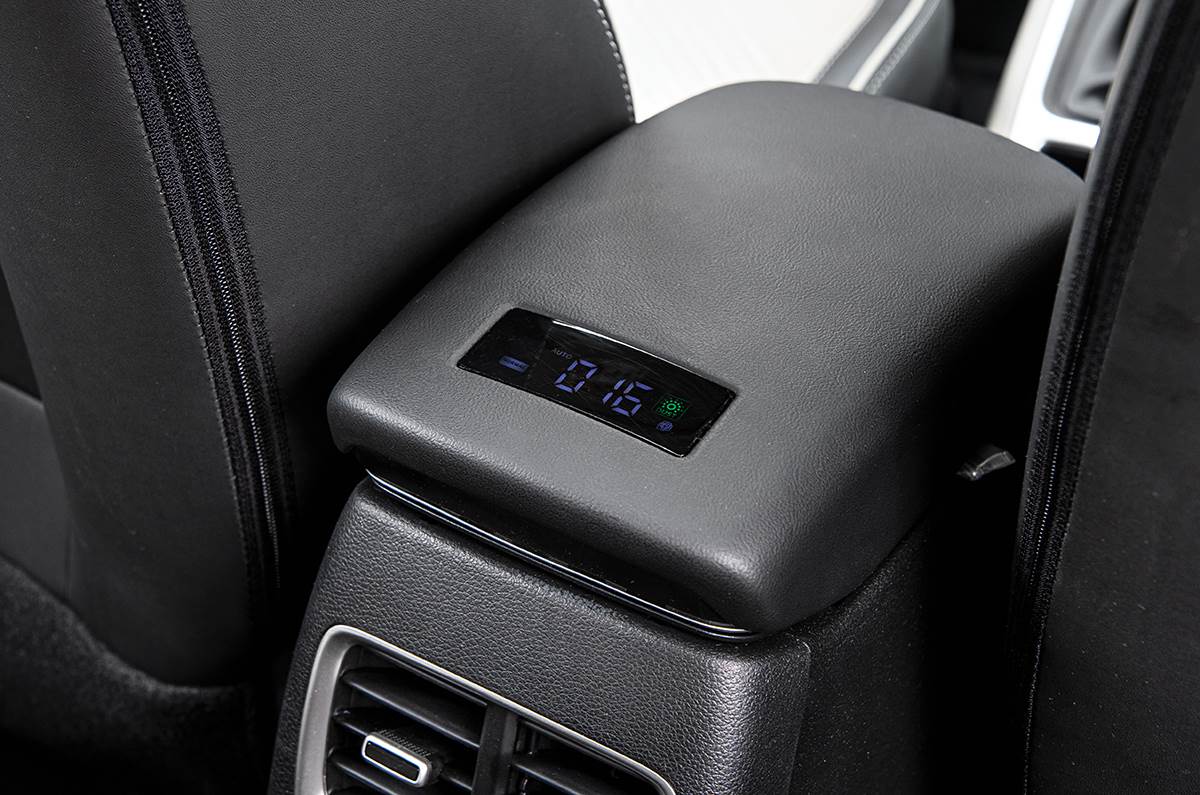
So we set off the next morning at about 4am to head to the bridge. Navigating through the dark streets of downtown Dibrugarh, I realised that the Venue’s cornering lamps – built into the main headlight cluster – are quite the help. Especially to catch out that philosophical cow standing just around a corner, contemplating the meaning of life. And the smart new LED tail-lamps at the rear ensure that the Venue is visible to other bleary-eyed drivers who have just started out.
The Bhupen Hazarika Setu, which lies to the east of Dibrugarh, connects northern Assam to eastern Arunachal Pradesh, and is the first permanent link in this region. Previously, before 2017, the only way to get across the Lohit (a tributary of the mighty Brahmaputra) was via ferry and that too wasn’t possible during the monsoon. This bridge ensures 24×7 connectivity, and is strategically important given China’s Arunachal Pradesh fixation.
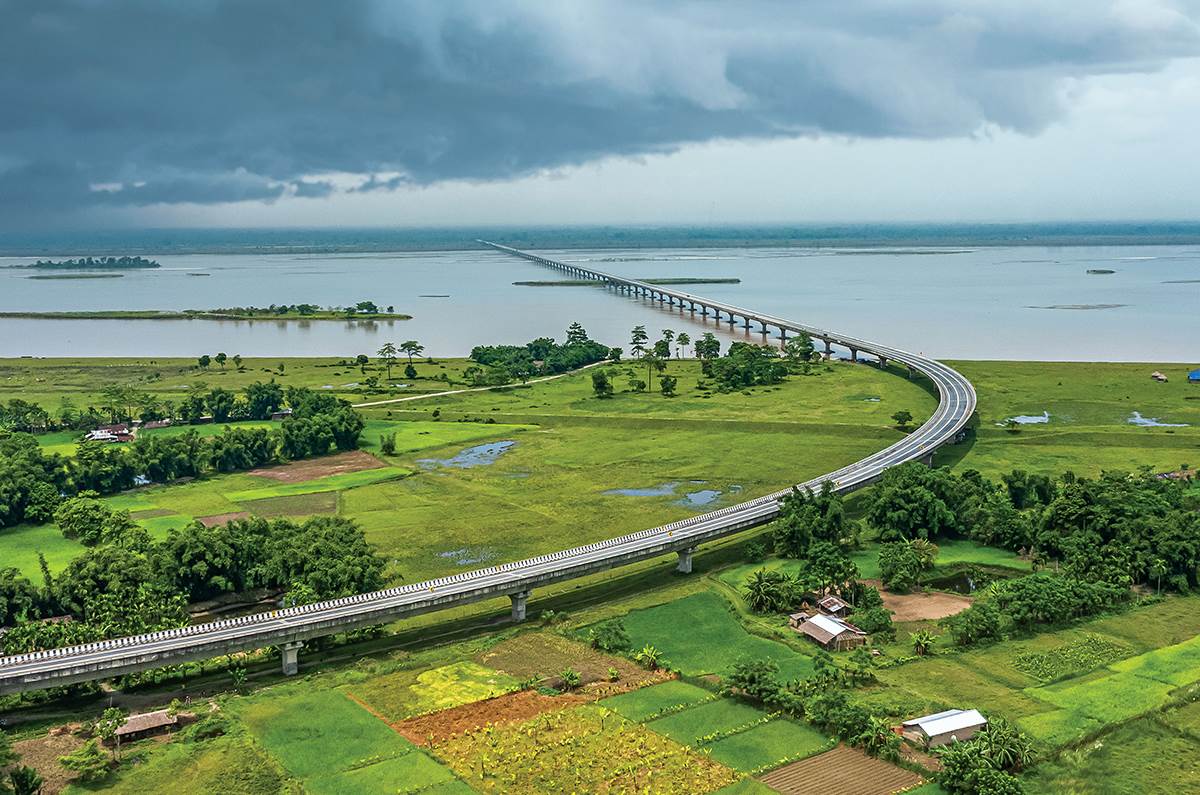
This bridge ensures that Indian defence assets can be rapidly deployed. It cuts down the travel time from Tinsukia in Assam to Roing in Arunachal Pradesh by a staggering five hours and saves about Rs 10 lakh worth of fuel everyday. The bridge has been designed to handle the weight of the 60 tonne Arjun and T-72 battle tanks. Each of its piers, from 1 to 182, has seismic buffers that make it earthquake proof.
It might not have the flamboyance of cable-stayed bridges such as the Atal Setu or the Bandra Worli Sea Link, but the Bhupen Hazarika Setu grows on you the more you spend time around it and look at it from different perspectives. A look at the drone footage we shot made me whistle in appreciation at its length and the way it snakes across the wide Lohit river.
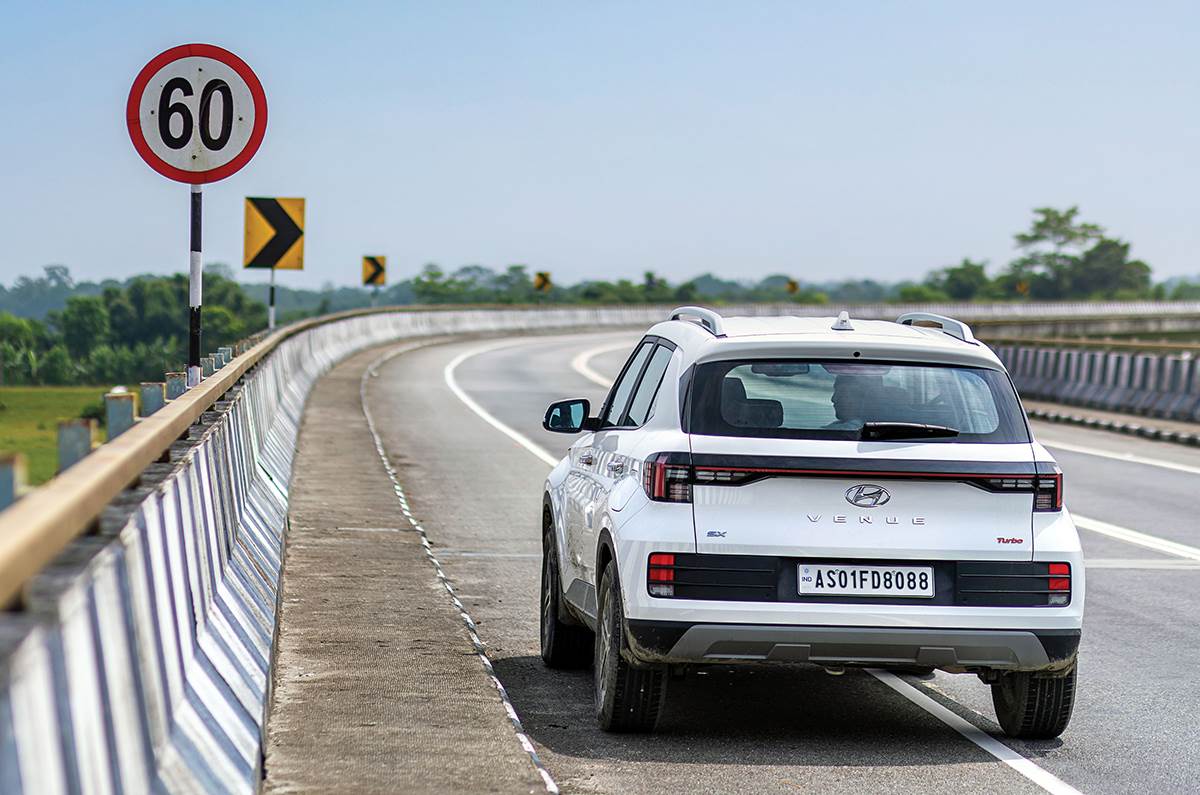
While the length of the bridge from pier 1 to pier 182 is 9.15km, the total length of the project, including approach roads on both sides, is 28.5km. The total cost of this project was a staggering Rs 1,000 crore. The speed limit on the bridge is 60kph and I found the Venue’s cruise control quite handy to stick at this speed and enjoy my runs back and forth over the bridge.
Now, standing and looking at the all-new Hyundai Venue parked on the green banks of the Lohit, with the bridge in the background, I can’t help but recall Val Kilmer’s words in the adventure film ‘The Ghost and the Darkness’ in which he plays Colonel John Henry Patterson, tasked with building a bridge over the River Tsavo in Kenya in 1898. He says: “What better job in all the world than build a bridge? Bring land over water. Bring worlds together.”
The Bhupen Hazarika Setu does exactly that!
Also read:
























